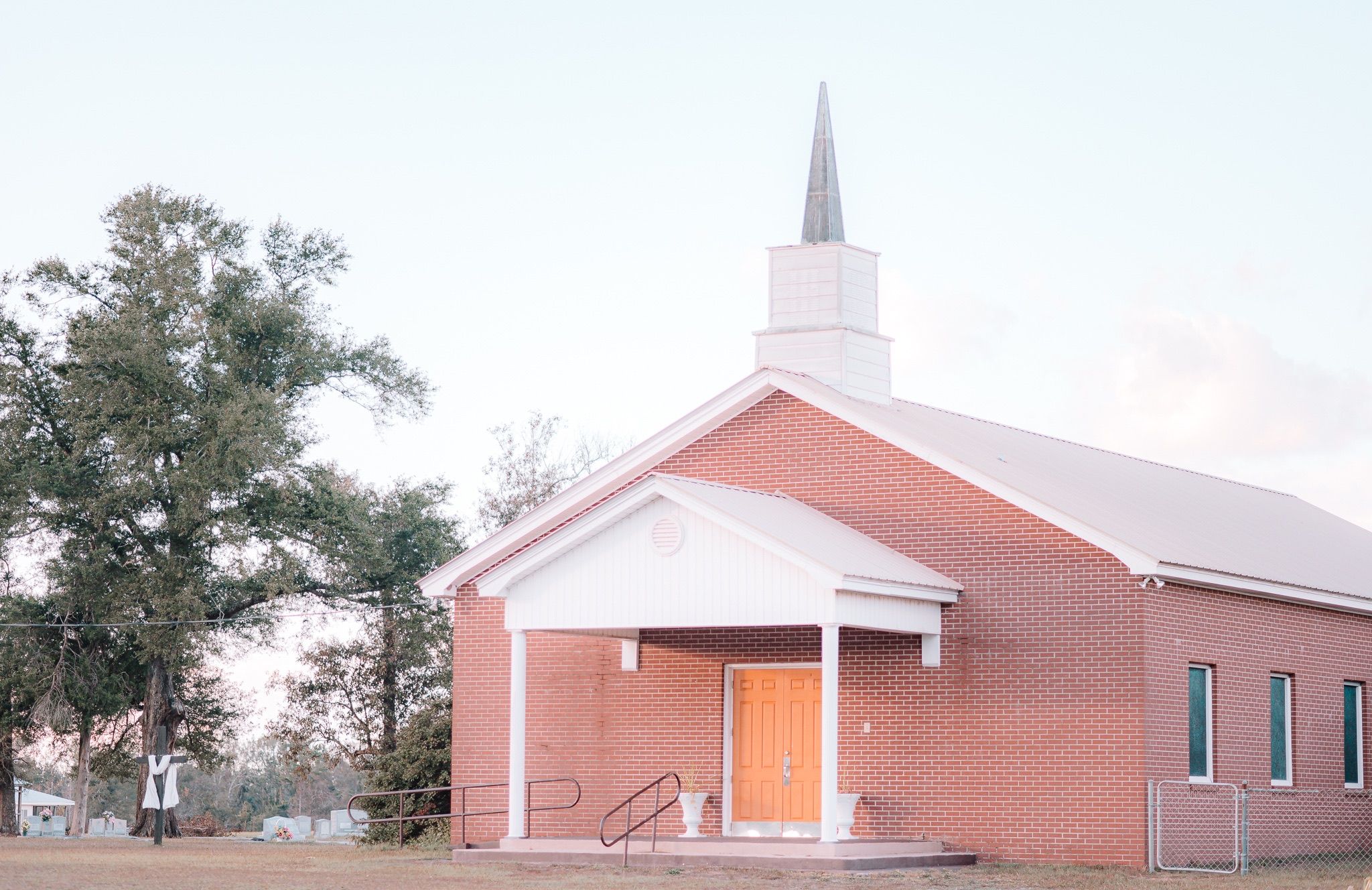Your First Five Years
Your First Five Years
We have 15 churches in our small Baptist Association. Three of those churches have pastors with close to 25 years of tenure. As I have built relationships with these great men of God, I’ve learned that they are much more concerned with personal holiness than with their ministry’s success. Rather than overwhelm themselves with church marketing strategies and techniques, they are devoted to prayer and devotion to God and want to be led by the Spirit. Of course, there is a place to learn about church growth, leadership structure, and helpful ideas. But none of those could take the position of the health and development of our own spiritual lives.
I have also learned that this type of tenure is the exception, not the rule.
On average, a pastor will stay at a church for about five years. A Duke University study showed that 85% of seminary graduates entering the ministry will leave in the first five years, and 90% of all pastors will not stay until retirement. There are several reasons for this, and I can’t pretend to do a complete diagnosis of the issue. But I have noticed one thing in my generation of 25-35-year-olds and now the generation under me. We have grown up with false expectations of ministry.
We grew up on the launch and rise of social media, where all the prominent “big-name” pastors have platforms for the masses. In this mentality, ministry looks like a spotlight, and tentative pastors have much to look forward to but are sometimes met with a false sense of fame and glory. Jimbo and Bob said on the podcast, “Future pastors think they’re going to change the world, but then, they change the bulletin and almost get fired.” Most churches are not mega-churches that you see on viral clips online. They are simple, small congregations scattered throughout the U.S., many of them in rural areas.
If we’re honest, we could make the world of Replanting and Revitalization look like a glamorous ministry endeavor by marketing efforts, resources, and heroes who speak at conferences. But the reality is that this type of ministry is, in fact, a gritty and glorious work. We should never pretend to create false expectations, but face the truth. Replanting is an amazing, God-favored work. But it is a difficult and gruelling work as well. 
If we can continue to share the realities of ministry, as this podcast has done so well, we can give replanters and pastors the hope they need to make it through and celebrate their wins in ministry while acknowledging the hardships. So, speaking in general terms, here is what your first five years replanting a church may look like.
Year 1: Who are they? Who am I?
In a Church Replant, it can be natural to look around, see all the negative, and start making changes. But you know that your first year of ministry is a trust-building season. If you don’t intentionally pursue building trust with anyone and everyone, they won’t be ready for any change you bring. During the first year, a pastor should focus all their efforts on being a pastor.
Pray and ask God to help you develop relationships and love this flock. Don’t see this church as a stepping stone for a future ministry role. This is where God has called you. Teach, lead, and care for the sheep while you learn how to shepherd them well. During this first year, you will probably have many opportunities to sit down with them in their homes, find out where they work, and build friendships with them. You also will want to take this first year to grow and get to know your community.
Also, this first year will allow you to discover who you are as a minister. How do you deal with stress? What are your natural strengths in ministry? Your weaknesses? What areas do you need to work on in your own personal life? Ask God to lead you each day as you seek to minister to these people.
Year 2: I think this is going to be hard
It is natural in year two to begin experiencing some conflict. Any type of change you recommend has started to become problematic, and people are resisting your leadership. They trust you as a pastor to care for them but aren’t sure they should trust you as a leader to lead effective change. Change is viewed as a loss for those who experience it. Slowly, some members may feel like they are losing their grip on power and influence.
 As you lean in and develop relationships, some get close to you and are your most incredible supporters and encouragers. Others criticize your leadership and have their own opinions. But still, you remain optimistic and consider what the future looks like. Remind yourself, “This is where God called me. God has called me to love these people. To pastor these people. To care for these people.” “Sure,” you think, “The grass might be greener elsewhere. But it couldn’t be greener than being in the center of God’s will.” That hopeful optimism will carry you into year 3. Still, somewhere between years 2 and 3, many pastors begin seeking a new church.
As you lean in and develop relationships, some get close to you and are your most incredible supporters and encouragers. Others criticize your leadership and have their own opinions. But still, you remain optimistic and consider what the future looks like. Remind yourself, “This is where God called me. God has called me to love these people. To pastor these people. To care for these people.” “Sure,” you think, “The grass might be greener elsewhere. But it couldn’t be greener than being in the center of God’s will.” That hopeful optimism will carry you into year 3. Still, somewhere between years 2 and 3, many pastors begin seeking a new church.
Year 3: I think this was a big mistake
As much as your optimism has kept you afloat, the third year of ministry will generally become more complex than anything you’ve expected. Church leaders and experts have studied the dangerous third year of ministry. And according to Church Answers, here are some reasons why many pastors consider leaving during that third year.
- The honeymoon phase was over from the church’s perspective. The church began seeing the imperfections in the pastor’s ministry. Many brought concerns about those imperfections to the pastor.
- The honeymoon phase was over from the pastor’s perspective. Some promises made by those who first sought the pastor were unfulfilled. The pastor may feel like he was misled.
- When a new pastor arrives, most church members have their own expectations of the pastor. But it is impossible to meet everyone’s expectations. By the third year, some of the members become disillusioned and dissatisfied.
- By the third year, the church typically has several new members who arrived under the present pastor’s tenure. Similarly, some members who preceded the pastor have died or moved away. The new members seem great in number compared to existing members. These changes threaten some.
- In any longer-term relationship, that which seems quaint and charming can become irritating and frustrating. The pastor’s quirks thus become the pastor’s faults.
- All relationships have seasons. None of them can remain on an emotional “high.”
At the Replant Bootcamp, we agree with many of these reasons why a third year in ministry seems to be the hardest. Sometimes, you may even see a significant slide in attendance and finances. And you’re thinking, “Why?!”
On a personal note, you’ll experience a lot of self-doubt and spiritual warfare. You may even avoid people and resent people, reverting to isolation to avoid criticism and question God’s call.
But through this difficult season, God is using your experience to teach you something. With as much caution as I can use, I think God is saying this: “Hang on. Hold on. Stay in there. Because I’m doing some ‘pruning,’ some ‘molding,’ and some ‘refining.’ I’m doing some work on people’s hearts. And if you’ll be patient, I will use how you handle yourself in this season to purify your ministry and give people hope in your leadership.”
During the third year, God is like a gardener, doing some pruning (John 15:2). God is like a potter, molding his clay (Jeremiah 18:1-5). God purifies his silver like a refiner (1 Peter 1:6-7). And if we just place our hope in him through the turmoil, He will sharpen the authenticity of our faith and give us the resilience to make it through.
Year 4: Okay, let’s make this work
You may still be going through some fire, but you see the light at the other end of the tunnel. You begin to see in this season what it looks like when God gives you the vision to lead with effective change. By now, you’ve learned what works and what doesn’t. You learned to love the quirks of your congregation, not to let them aggravate you.
 You are starting to accept things for how they are. And you know how to lead change that doesn’t cause a mass exodus because your people trust you more and more. Our encouragement to you in year 4 is to love and laugh. Love them unconditionally. And laugh as often as you can. Eat together, spend time together, and enjoy one another. Cry and grieve with them, and find the right pockets of time to implement change.
You are starting to accept things for how they are. And you know how to lead change that doesn’t cause a mass exodus because your people trust you more and more. Our encouragement to you in year 4 is to love and laugh. Love them unconditionally. And laugh as often as you can. Eat together, spend time together, and enjoy one another. Cry and grieve with them, and find the right pockets of time to implement change.
Your sermon development has turned into a joyful preparation to feed God’s flock instead of damage control just to maintain. Some of the pressure has started to ease, and you’ve settled into your pastor, leader, and caregiver role. Yes, conflict still exists, but you know that all pain has a purpose. God is using you, so don’t give in yet.
Years 5-7: This is my new normal
In year five, you put your hand to the plow, and there is no looking back. During this time, you celebrate victories, you learn from mistakes, and you pastor and love the church you have. Don’t grieve the church that “could have been.”
By this time, you’re starting to settle into what you believe will be a long-tenured ministry if God allows and directs. One of the principles of a long-tenured ministry is that you trust your call, even when things get complicated. You cannot neglect your spiritual discipline. Be in the word, be in prayer, and make sure you rest. Preach on ecclesiology every year. Your church must be taught and reminded of how to be the church.
Somewhere along the way, the church is beginning to see you, not as someone passing through, but as their pastor. Remember that a long-tenured ministry requires patience, dedication, and the ability to weather both the highs and the lows.















